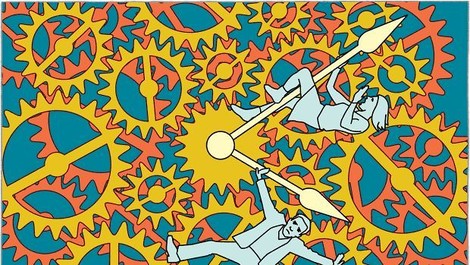Your podcast discovery platform
Curious minds select the most fascinating podcasts from around the world. Discover hand-piqd audio recommendations on your favorite topics.

piqer for: Boom and bust Global finds
I am a Dutch journalist, writer and photographer and cover topics such as human rights, poverty, migration, environmental issues, culture and business. I’m currently based in The Hague, The Netherlands, and frequently travel to other parts of the world. I have also lived in Tunisia, Egypt, Kuwait and Dubai.
My work has been published by Al Jazeera English, BBC, The Atlantic's CityLab, Vice, Deutsche Welle, Middle East Eye, The Sydney Morning Herald, and many Dutch and Belgian publications.
I hold an MA in Arabic Languages and Cultures from Radboud University Nijmegen and a post-Master degree in Journalism from Erasmus University Rotterdam. What I love most about my work is the opportunities I get to ask loads of questions. Email: [email protected]
Prefer more time or more money?
In this article in The Sydney Morning Herald (founded in 1831 and the oldest continuously published newspaper in Australia), journalist Matt Wade writes about how people often undervalue their own time. This creates all sorts of anomalies and inefficiencies in how we organise our economic life. Good to be aware of this, I think.
Despite all the talk about people being “time-poor” it turns out we are often willing to give time away for free.
On the one hand, he writes, we buy products that save time like dishwashers and home-delivered meals. But at the same time, we drive out of the way to save a few dollars at the petrol pump, use supermarket self-checkouts and devote hours of our own labour putting Ikea furniture together at home (indeed... I'm in the middle of a relocation).
Our tendency to underestimate time afflicts consumers as well as workers, the journalist warns.
“The less we are aware of the value of our own time, the easier it becomes for employers and governments to steal it,” says economist Jim Stanford, director of the Australia Institute’s Centre for Future Work.
According to Stanford, trends in the jobs market today mean the “battle over time” is intensifying. Valuing time in the gig economy can be tricky for workers, especially if they are low skilled. New platforms like Uber or Deliveroo rely heavily on the human tendency to undervalue our own time.
“People can be tricked into working for way, way below the minimum wage,” says Stanford.
In a recent study at the University of California, about 4,000 Americans were asked whether they would prefer more money or more time. About two-thirds said they’d take the money. However, when asked to report their level of happiness and life satisfaction, it turned out the people who chose more time were on average statistically happier and more satisfied with life than the people who chose more money.
The upshot? There’s a strong link between our wellbeing and how we value time.
